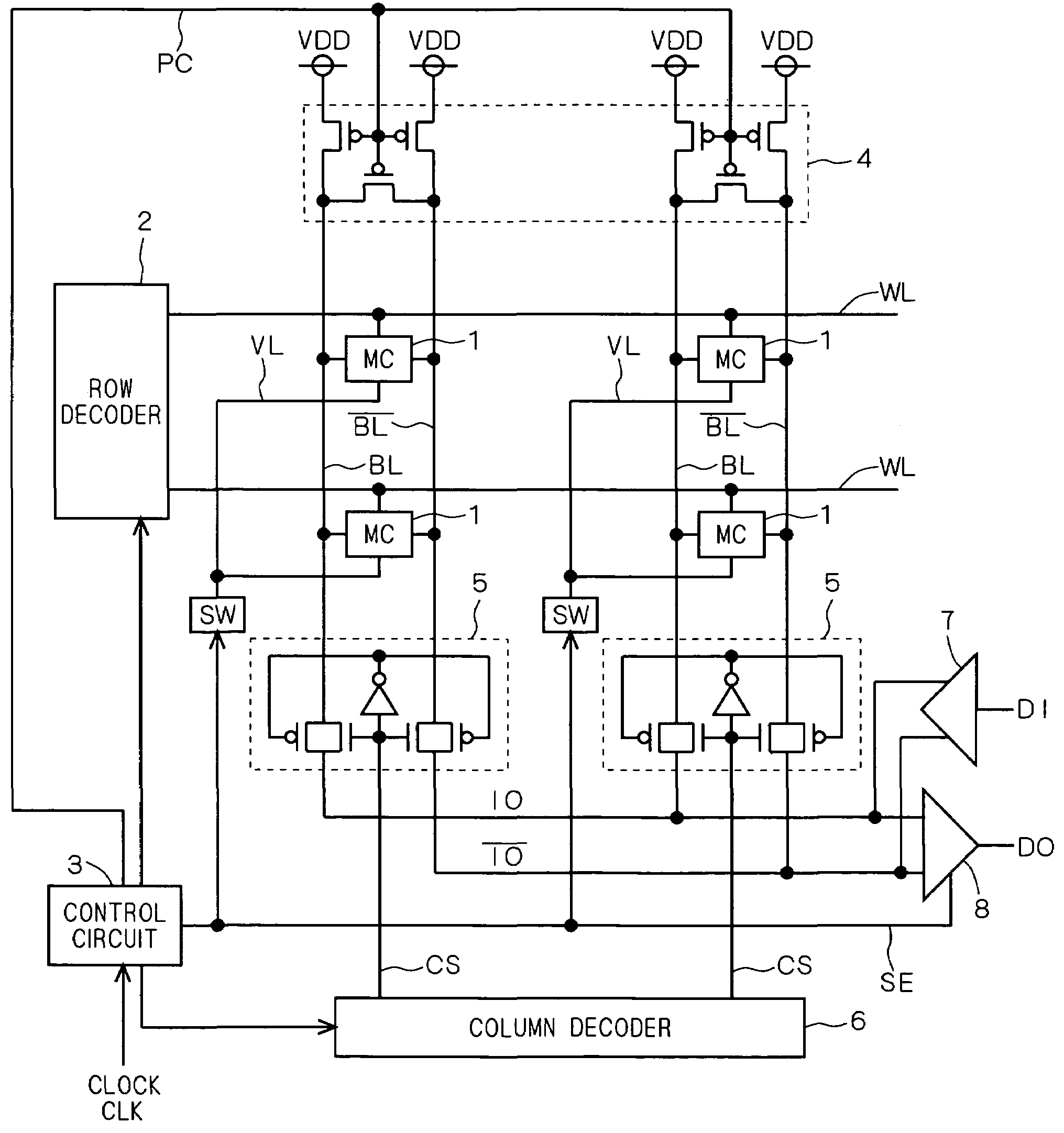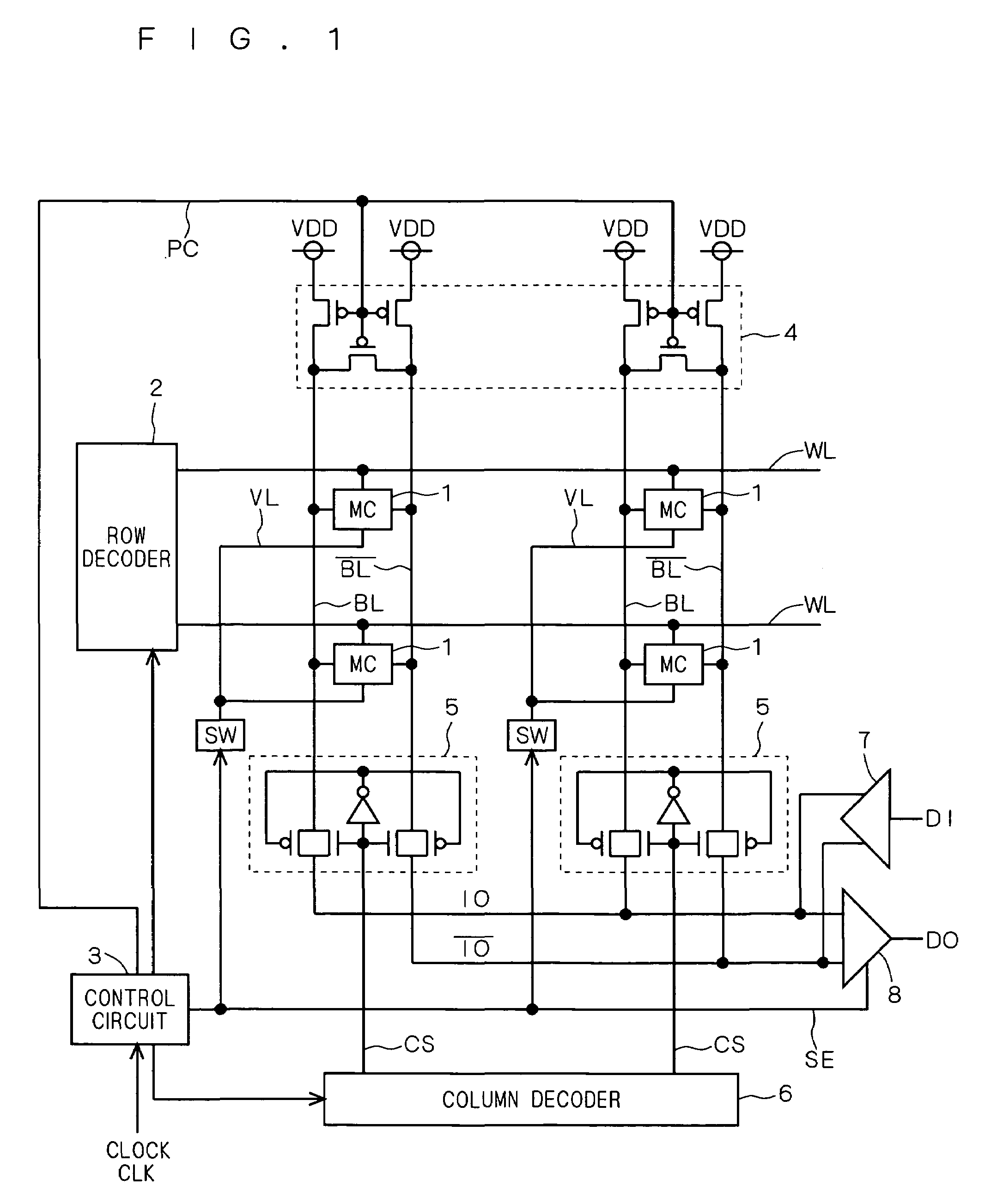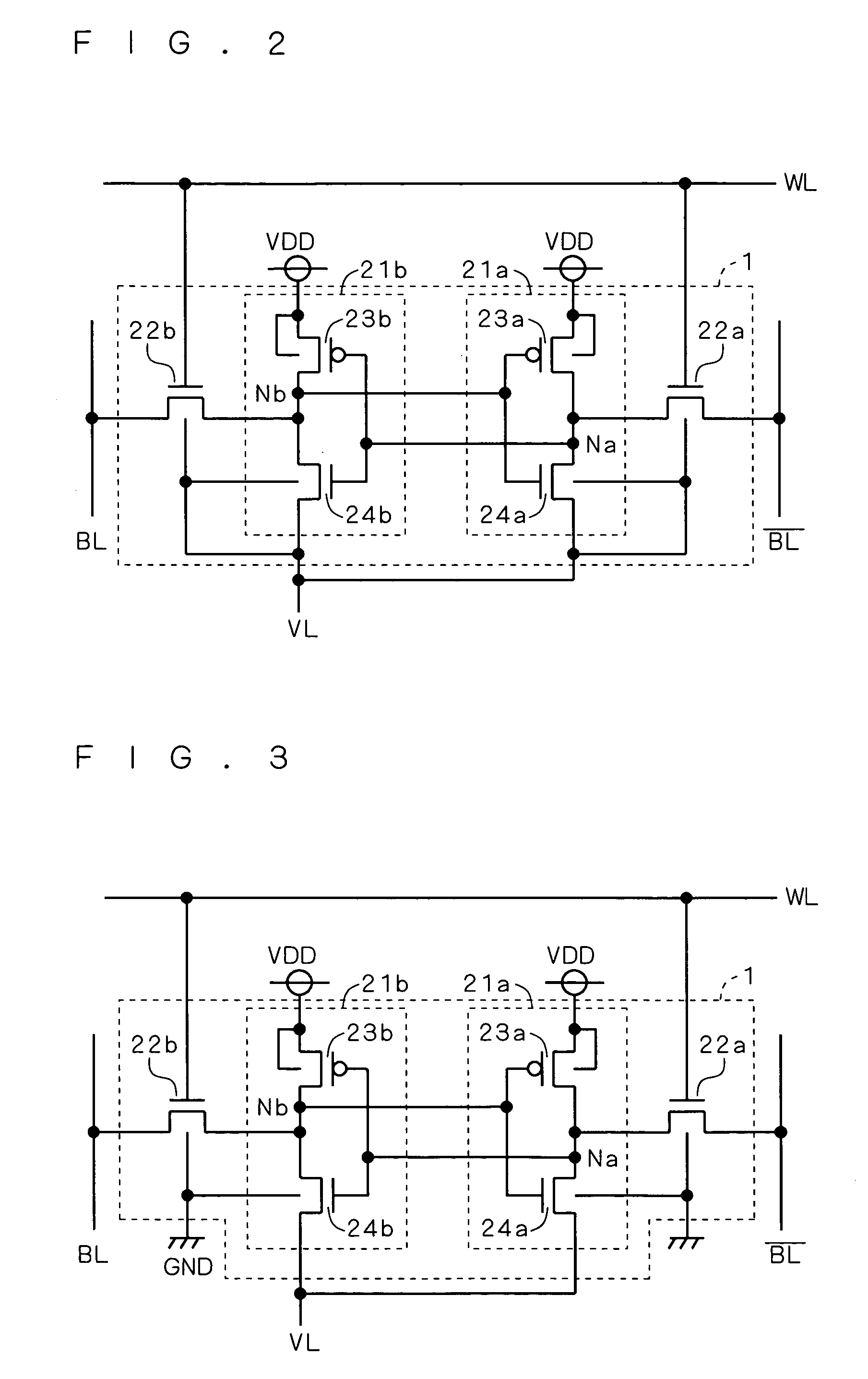Semiconductor device
a technology of semiconductor devices and dielectric devices, applied in the direction of information storage, static storage, digital storage, etc., can solve the problems of increasing operating power, wasteful current flowing through the bitline pair, and difficult optimization of timing design, so as to reduce wasteful power consumption
- Summary
- Abstract
- Description
- Claims
- Application Information
AI Technical Summary
Benefits of technology
Problems solved by technology
Method used
Image
Examples
first preferred embodiment
[0053]The semiconductor device according to the present preferred embodiment is a semiconductor device having a memory unit. FIG. 1 illustrates a configuration diagram of a memory unit of the semiconductor device according to the present preferred embodiment (hereinafter also simply referred to as a “semiconductor device”). In the present preferred embodiment, the description assumes that the memory unit is a SRAM. It should be noted, however, that the present invention is not limited to SRAMs but may be applied to other memories such as multi-port memories and ROMs (Read Only Memories) as long as the memory units do not require refresh operations.
[0054]Referring to FIG. 1, the memory unit includes memory cells 1 arranged in a matrix form, and each of the memory cells 1 is connected to wordlines WL and a bitline pair BL and BL. In the semiconductor device shown in FIG. 1, the wordlines WL are connected to a row decoder 2, and the row decoder 2 is connected to a control circuit 3. On...
second preferred embodiment
[0082]Next, a second preferred embodiment is described. In the first preferred embodiment, the memory cell potential controlling circuits SW carry out the same operation for all the columns irrespective of whether or not the column is selected by the column decoder 6. In the present preferred embodiment, the memory cell potential controlling circuits SW perform different control operations for memory cells 1 that are to be read out and for memory cells 1 that are not read out.
[0083]FIG. 8 shows a configuration diagram of a semiconductor device according to the present preferred embodiment. The configuration diagram shown in FIG. 8 is basically the same as that shown in FIG. 1, and the present preferred embodiment also describes an SRAM as an example.
[0084]First, the semiconductor device shown in FIG. 8 includes memory cells 1 arranged in a matrix form, and each of the memory cells 1 is connected to a wordline WL and a bitline pair BL and BL. In the semiconductor device shown in FIG....
third preferred embodiment
[0098]Next, a third preferred embodiment is described. A semiconductor device according to the present preferred embodiment has a configuration in which the circuit of the memory cell 1 shown in FIG. 2 or 3, discussed in the first preferred embodiment, is replaced with a circuit of a memory cell 1 shown in FIG. 11 or 12. The memory cell 1 shown in FIG. 11 includes inverters 21a and 21b that constitute an inverter latch for storing data, and NMOSs 22a and 22b the gates of which are connected to a wordline WL. The NMOS 22a connects a bitline BL with the inverter 21a, while the NMOS 22b connects a bitline BL with the inverter 21b.
[0099]The inverter 21a includes a PMOS 23a connected between a VL line and a node Na, and an NMOS 24a connected between the node Na and GND. The inverter 21b includes a PMOS 23b connected between the VL line and a node Nb, and an NMOS 24b connected between the node Nb and GND.
[0100]Both the gates of the PMOS 23a and the NMOS 24a are connected to the node Nb, ...
PUM
 Login to View More
Login to View More Abstract
Description
Claims
Application Information
 Login to View More
Login to View More - R&D
- Intellectual Property
- Life Sciences
- Materials
- Tech Scout
- Unparalleled Data Quality
- Higher Quality Content
- 60% Fewer Hallucinations
Browse by: Latest US Patents, China's latest patents, Technical Efficacy Thesaurus, Application Domain, Technology Topic, Popular Technical Reports.
© 2025 PatSnap. All rights reserved.Legal|Privacy policy|Modern Slavery Act Transparency Statement|Sitemap|About US| Contact US: help@patsnap.com



